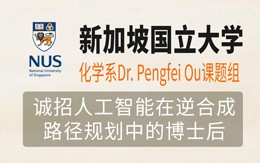World Archaeology ( IF 1.8 ) Pub Date : 2023-02-20 , DOI: 10.1080/00438243.2023.2179537
P. Johnston 1 , T. Booth 2 , N. Carlin 3 , L. Cramp 4 , B. Edwards 1 , M. G. Knight 5 , D. Mooney 6 , N. Overton 7 , R. E. Stevens 8 , J. Thomas 7 , N. Whitehouse 9 , S. Griffiths 1
ABSTRACT
Organic remains from excavated sites include a wide range of materials, from distinct organisms (‘ecofacts’) to biomolecules. Biomolecules provide a variety of new research avenues, while ecofacts with longer histories of study are now being re-harnessed in unexpected ways. These resources are unlocking research potential, transcending what was previously imagined possible. However, this ‘organics revolution’ comes with a salutary corollary: our approaches to recovering and curating organics, and making accessible research data, are not developing as quickly as we need. In this paper, we review retention guidelines for institutions in Britain and Ireland, setting this against the backdrop of a ‘curation crisis’ that is affecting museums throughout Europe, and beyond. We suggest key themes, including the state of existing documentation and considerations of intrinsic and allied research potential, that should be used to open a discussion about the development of more comprehensive and standardised approaches to archiving in the future. Engaging in this conversation is the only way that we can hope to ensure the long-term retention and preservation of organics, while safeguarding associated research data. These changes are needed to ensure future global research collaborations across the academic, curatorial and professional archaeological sectors.
中文翻译:

有机革命:新的叙述以及我们如何实现它们
摘要
挖掘现场的有机遗骸包括多种材料,从不同的有机体(“生态事实”)到生物分子。生物分子提供了多种新的研究途径,而具有较长研究历史的生态事实现在正以意想不到的方式被重新利用。这些资源正在释放研究潜力,超越了之前的想象。然而,这场“有机革命”带来了一个有益的推论:我们回收和管理有机物以及提供可访问的研究数据的方法并没有像我们需要的那样发展得那么快。在本文中,我们回顾了英国和爱尔兰机构的保留指南,并将其置于影响整个欧洲及其他地区博物馆的“策展危机”的背景下。我们建议关键主题,包括现有文献的状况以及对内在和相关研究潜力的考虑,这些应该用于开启关于未来制定更全面和标准化归档方法的讨论。参与这场对话是我们希望确保有机物的长期保留和保存,同时保护相关研究数据的唯一途径。这些变化是确保未来跨学术、策展和专业考古部门的全球研究合作所必需的。参与这场对话是我们希望确保有机物的长期保留和保存,同时保护相关研究数据的唯一途径。这些变化是确保未来跨学术、策展和专业考古部门的全球研究合作所必需的。参与这场对话是我们希望确保有机物的长期保留和保存,同时保护相关研究数据的唯一途径。这些变化是确保未来跨学术、策展和专业考古部门的全球研究合作所必需的。

































 京公网安备 11010802027423号
京公网安备 11010802027423号